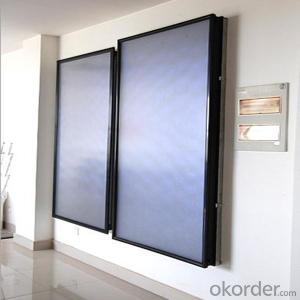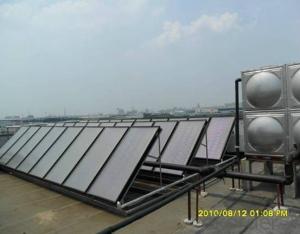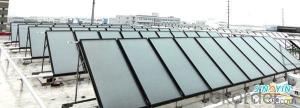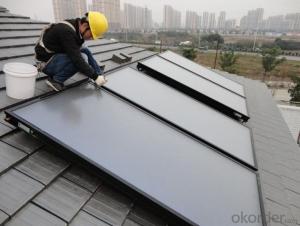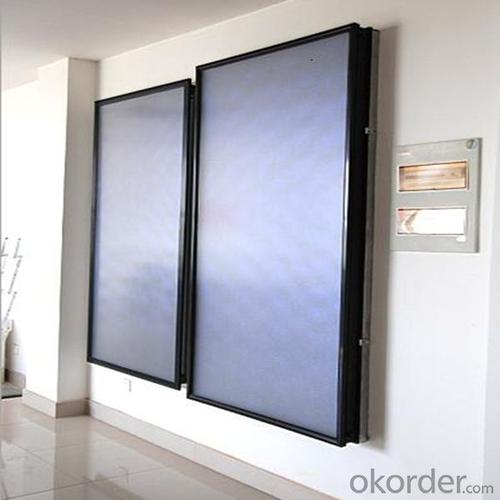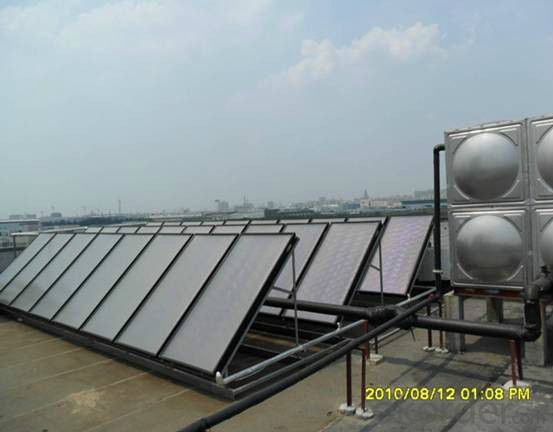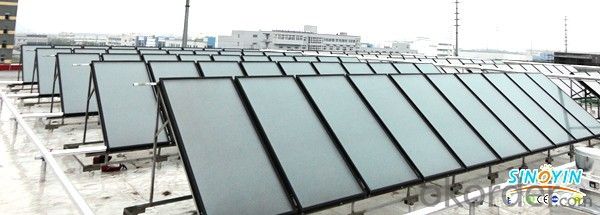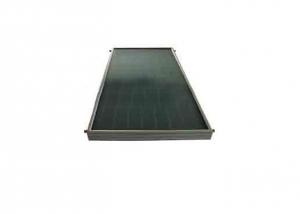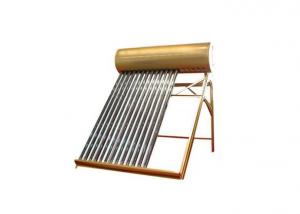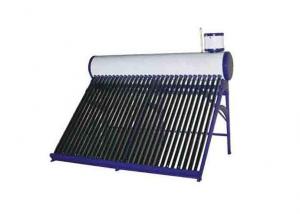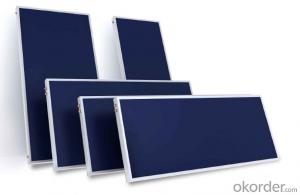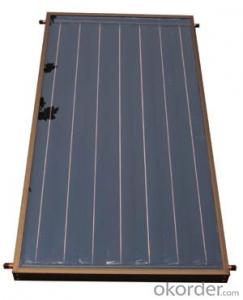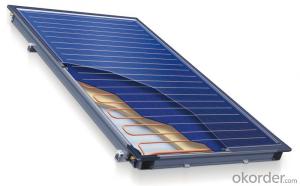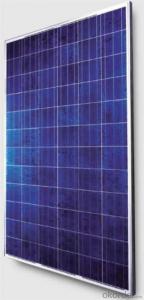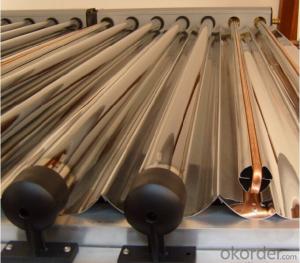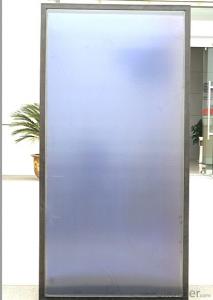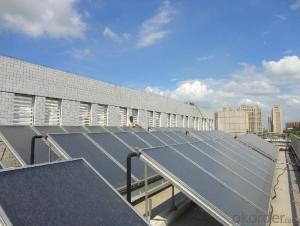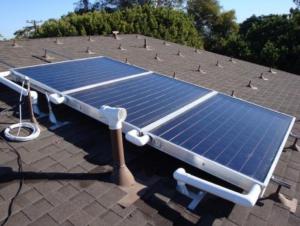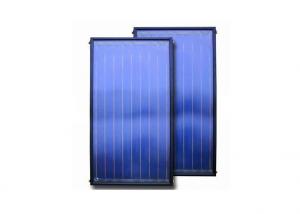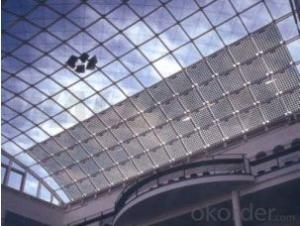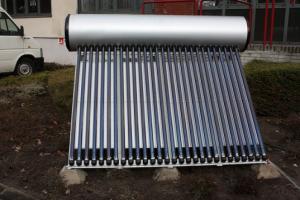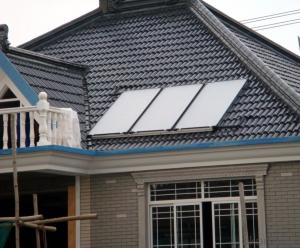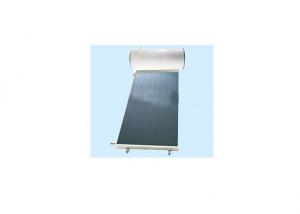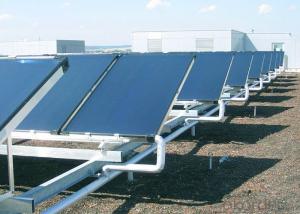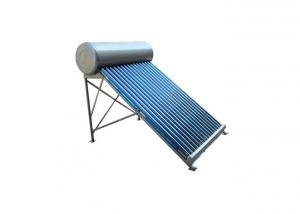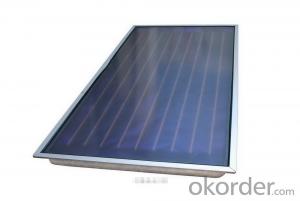RV Flat Plate Solar Collectors for Solar Energy
- Loading Port:
- Shanghai
- Payment Terms:
- TT OR LC
- Min Order Qty:
- 50 pc
- Supply Capability:
- 100000 pc/month
OKorder Service Pledge
OKorder Financial Service
You Might Also Like
Flat Plate Solar Collectors Solar Energy
The flat plate solar collectors is a kind of solar energy into heat energy, the heat generated can be used in everyday life hot water, heating, heating and industrial applications of low temperature hot water. Flat-plate collector is better than glass vacuum tube solar products in structure, strength and performance, its heat production performance, service life and structural strength considerably with building materials, is currently the world's solar thermal utilization products and building integrated fusion best , so the use of flat plate solar collectors is tantamount to the best choice.
The following is solar collectors’ advantages:
1) S-type tube flat plate solar collector, have gotten the line patent in China. Besides, we are Famous factory to produce S-type tube flat plate solar collector, no any welding on the tube, no any leakage.
2) Laser welding between whole absorber panel and copper tube, high strength thicken heavy duty aluminum frame, much better than some technology of ultrasonic welding or heat-conducting glue in some factories.
3) The instant heat efficiency of the collector can up to 81.1%, much higher than the 72% standard, very rare in China.
4) Germany imported high efficient selective blue titanium coating. Use best copper tubes in Domestic. The copper brand is Hai liang.
5) Special low-iron tempered glass with transmittance more than 92%.
6) Mechanical load, freeze resistance, rain penetration, exposure, hail impact, external and internal shock tested etc.
7) Long lifetime, large absorber area and good warm keeping, European, North America specially designed.
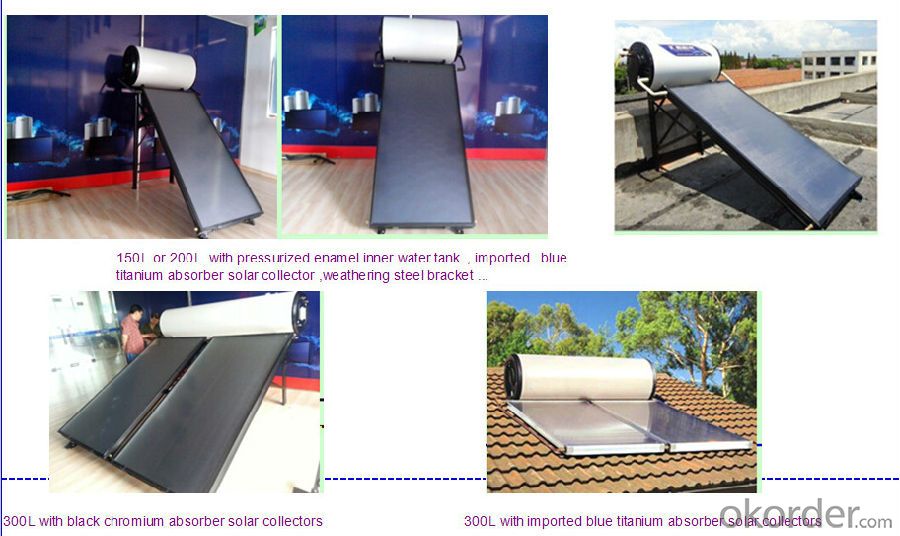
Solar wather heater components:
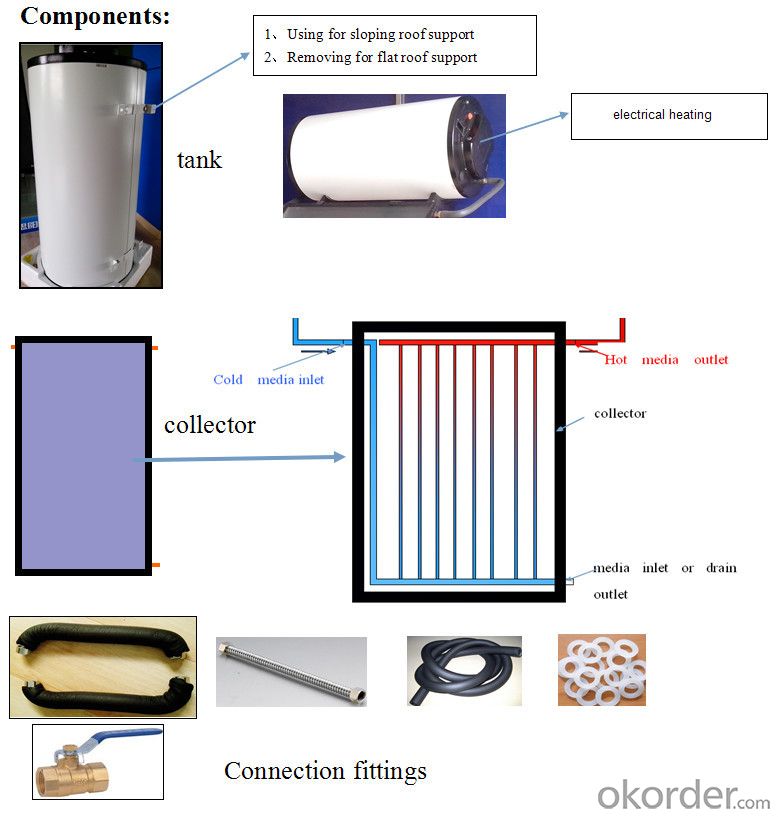
Flat Plate Solar Collectors installation:
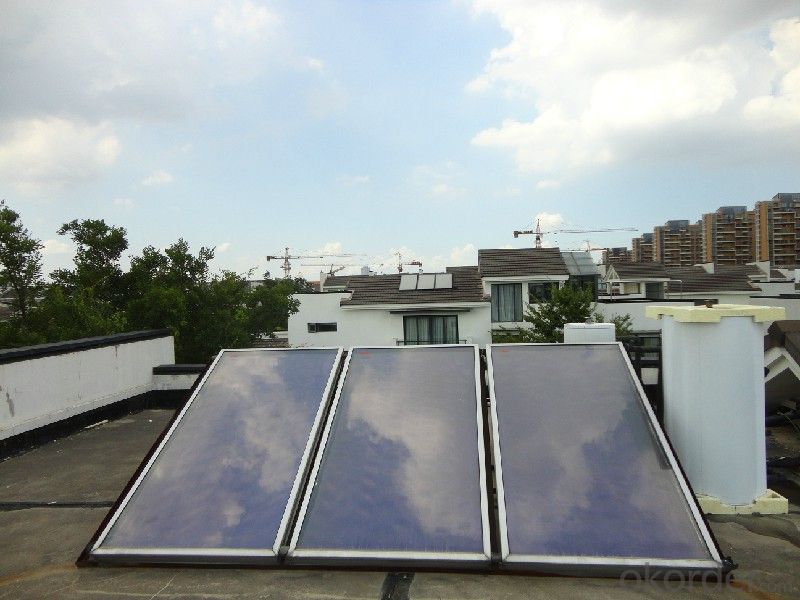
- Q: Can solar collectors be used for heating textile factories?
- Yes, solar collectors can be used for heating textile factories. Solar thermal systems can provide a sustainable and cost-effective solution for heating needs in industrial settings, including textile factories. By harnessing the sun's energy, solar collectors can generate heat and transfer it to the factory, reducing reliance on fossil fuels and lowering carbon emissions. Additionally, solar heating systems can be customized to meet specific requirements and integrated with existing heating systems, making them a viable option for textile factories aiming to reduce their environmental impact and energy costs.
- Q: Can solar collectors be used for heating casinos?
- Yes, solar collectors can certainly be used for heating casinos. Solar thermal technology can be employed to capture and convert sunlight into heat energy, which can then be used for various heating applications within the casino, such as space heating or water heating. This can help reduce reliance on fossil fuel-based heating systems and contribute to the overall sustainability and energy efficiency of the casino.
- Q: Can solar collectors be used in educational campaigns?
- Yes, solar collectors can be used in educational campaigns. They serve as a practical and tangible way to demonstrate the benefits and functioning of solar energy. By showcasing solar collectors in educational campaigns, students and the general public can learn about renewable energy sources, the importance of sustainability, and the potential for reducing carbon emissions. Additionally, these campaigns can raise awareness about the potential for solar energy to power homes, businesses, and even communities, inspiring individuals to consider adopting clean energy solutions.
- Q: How do solar collectors perform in areas with heavy snowfall?
- Solar collectors do not perform optimally in areas with heavy snowfall. The snow accumulation on the panels can obstruct sunlight and decrease the efficiency of the solar collectors. However, some solar systems are designed with features like tilt and heat elements to mitigate snow buildup and improve performance in snowy conditions. Regular maintenance, such as removing snow from the panels, is also necessary to ensure their effectiveness.
- Q: Are there any challenges in integrating solar collectors with existing electrical systems?
- Yes, there are challenges in integrating solar collectors with existing electrical systems. One major challenge is ensuring compatibility between the voltage and frequency outputs of the solar collectors and the existing electrical system. Additionally, the intermittent nature of solar power generation poses a challenge in maintaining a stable and reliable energy supply. The installation and wiring of solar collectors into the existing electrical system also require careful planning and expertise to ensure safety and efficiency. Moreover, the cost of integration and potential grid infrastructure upgrades can be additional challenges to consider.
- Q: Can solar collectors be used for heating waste management facilities?
- Yes, solar collectors can be used for heating waste management facilities. Solar thermal systems can be installed to capture and convert solar energy into heat, which can then be used for various applications including heating waste management facilities. This can help reduce the reliance on traditional energy sources and decrease the carbon footprint of these facilities.
- Q: Can solar collectors be used in disaster-resilient infrastructure?
- Yes, solar collectors can be used in disaster-resilient infrastructure. By harnessing the power of the sun, solar collectors can provide a reliable and sustainable source of energy even during times of disaster or grid failures. This can help ensure that critical infrastructure, such as hospitals, emergency shelters, and communication systems, remain operational and resilient in the face of natural disasters or other emergencies. Additionally, solar collectors can reduce the reliance on traditional energy sources and contribute to a more sustainable and environmentally friendly infrastructure.
- Q: Can solar collectors be used for cooking?
- Yes, solar collectors can be used for cooking. Solar cookers utilize the sun's energy to heat and cook food, making them a sustainable and environmentally friendly option for cooking.
- Q: Are solar collectors suitable for hotels and resorts?
- Solar collectors, also known as solar thermal systems, are well-suited for use in hotels and resorts. These systems utilize panels to capture and absorb sunlight, converting it into heat energy. This heat energy can then be utilized for various purposes, such as heating water for showers, pools, and space heating. Hotels and resorts have substantial energy requirements, as they constantly need hot water, air conditioning, and heating. By implementing solar collectors, they can significantly reduce their reliance on traditional fossil fuel-based energy sources. This not only results in considerable cost savings but also brings about environmental advantages. The installation of solar collectors in hotels and resorts can also enhance their sustainability credentials, attracting environmentally conscious guests who prioritize eco-friendly accommodation options. This, in turn, can improve the reputation of the hotel or resort and set it apart from competitors. Moreover, solar collectors can be seamlessly integrated into the architectural design of hotels and resorts without compromising their aesthetic appeal. They can be installed on rooftops, facades, or in close proximity to the property, making the most of the available space. In conclusion, solar collectors are an excellent and advantageous energy solution for hotels and resorts. They help reduce energy expenses, promote sustainability, and appeal to environmentally aware guests. By harnessing the power of the sun, hotels and resorts can contribute to a greener future while maintaining their commitment to comfort and service excellence.
- Q: Can solar collectors be used for heating vehicles?
- Yes, solar collectors can be used for heating vehicles. Solar thermal collectors can capture the sun's energy and convert it into heat, which can then be used for various applications, including vehicle heating. By installing solar collectors on the vehicle's roof or other suitable surfaces, the collected solar energy can be used to heat the vehicle's interior or even preheat the engine coolant, reducing the need for conventional heating systems. This can help reduce the reliance on fossil fuels and lower the vehicle's environmental impact. However, it is worth noting that the effectiveness of solar collectors for vehicle heating may depend on factors such as the size of the collectors, the available sunlight, and the specific heating requirements of the vehicle.
Send your message to us
RV Flat Plate Solar Collectors for Solar Energy
- Loading Port:
- Shanghai
- Payment Terms:
- TT OR LC
- Min Order Qty:
- 50 pc
- Supply Capability:
- 100000 pc/month
OKorder Service Pledge
OKorder Financial Service
Similar products
Hot products
Hot Searches
Related keywords
